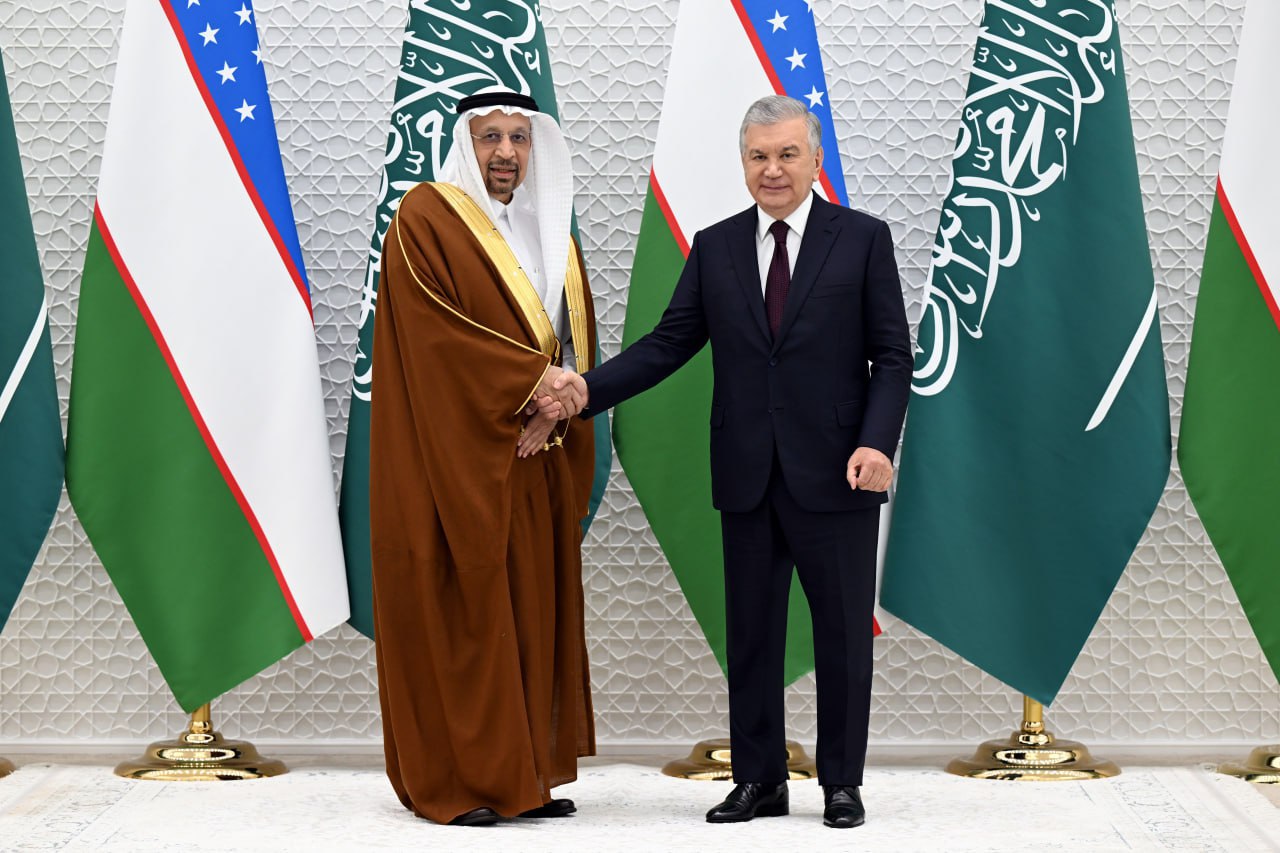BAKU, Azerbaijan, October 20. Uzbekistan is steadily strengthening its position as one of Central Asia’s leaders in the adoption of renewable energy. Against the backdrop of the global transition to a green economy, the country has become one of the region’s key partners for the Middle East. Saudi Arabia, implementing its Vision 2030 program aimed at economic diversification and the development of sustainable technologies, sees Tashkent as a crucial ally for expanding its energy presence in Asia.
A recent meeting between President of Uzbekistan Shavkat Mirziyoyev and Saudi Arabia’s Minister of Investment Khalid Al-Falih in Tashkent confirmed the high level of trust and alignment of interests between the two countries. The visit of the delegation, which included leaders of leading Saudi companies, marked another step toward transforming bilateral dialogue into a long-term strategic partnership.
“We highly value the significant contribution of our Saudi partners to Uzbekistan’s economic transformation and development,” President Mirziyoyev noted during the meeting.
The portfolio of joint projects between Uzbekistan and Saudi Arabia has now reached $27 billion. More than half of this amount is accounted for by ACWA Power, which has become the main investor in the renewable energy sector. Its projects alone are valued at $15 billion and include the construction of solar and wind power plants, the development of green hydrogen, and energy storage systems.
“Uzbekistan is ACWA Power’s second-largest investment partner,” emphasized the head of the company’s representation, John Zaidi. For Riyadh, this is not merely an economic project but a tool for implementing Vision 2030 - a program aimed at exporting green technologies and strengthening Saudi Arabia’s role as a global player in the clean energy market. For Tashkent, it is an opportunity to accelerate energy reforms, reduce dependence on fossil fuels, and transition to a sustainable growth model.
Among the largest projects is a 1.5 GW wind farm in the Kungrad district of Karakalpakstan, which will be the largest of its kind in the region. In addition, wind farms of 500 MW each are being constructed in the Peshkun and Gijduvan districts of the Bukhara region. Solar generation projects are being implemented in Tashkent and Samarkand regions, and in Chirchik, with the participation of PowerChina, a green hydrogen plant costing about $88 million is under construction. In the future, a 334 MW energy storage system is planned, along with the launch of solar power plants with a total capacity of 1 GW.
International financial institutions support the financing of these projects. For example, the Asian Development Bank allocated $51 million for the construction of the Nukus-2 wind power plant, highlighting the confidence in the Uzbek-Saudi partnership and its compliance with global ESG standards.
These projects not only strengthen Uzbekistan’s energy independence but also position the country as one of Central Asia’s key centers for green transformation.
Special attention is being given to training specialists. A new training system focused on preparing personnel in renewable energy has been introduced at the Energy College in the city of Shirin. Thus, the reforms cover not only infrastructure but also education, creating a foundation for the sustainable development of the energy sector.
“ACWA Power has always been a reliable partner for Uzbekistan and strives to contribute to President Shavkat Mirziyoyev’s strategy for developing green energy,” said Muhammad Abunayyan, co-chair of the Uzbek-Saudi Business Council and chairman of the company’s board. According to him, Uzbekistan is becoming a global example in the transition to clean energy, and green energy will remain the company’s main investment focus.
Ahmad Fahad, deputy head of ACWA Power operations in Central Asia, noted that the government is creating the most favorable conditions for investors. “Under President Mirziyoyev’s leadership, we feel constant support, transparency, and readiness for cooperation. This makes Uzbekistan one of the most attractive countries for business,” he emphasized.
Beyond energy, cooperation is expanding into new areas. Saudi company Data Volt is constructing a modern data center in Tashkent and plans similar projects in New Tashkent and Bukhara. This combines green energy with digital technologies, creating a foundation for “smart” infrastructure. Additionally, the creation of a “Metals of the Future Technopark” is being discussed for processing lithium, titanium, and graphite - strategic resources for battery production and clean energy technologies.
The rapid growth of the renewable energy sector offers great opportunities but also requires a thoughtful approach. The main priorities remain the modernization of power grids, the creation of energy storage systems, and the improvement of the regulatory framework. Only comprehensive infrastructure development will allow the full utilization of new capacities.
The transition to a green course has become a step toward a new level of cooperation between Uzbekistan and Saudi Arabia. For Uzbekistan, it is a path to sustainable development and energy independence; for Saudi Arabia, it is an opportunity to strengthen its position in the clean energy market. Joint projects demonstrate that the partnership between the two countries is built not only on investments but also on shared goals - creating modern, safe, and environmentally friendly energy for the future.







